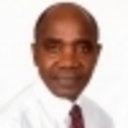Cranial injuries secondary to assault with a machete.
Paraules clau
Resum
BACKGROUND
Assaults with a machete cause compound skull fractures which present as a neurosurgical emergency. We aimed to profile cranial injuries caused by a machete over a 10 year period in a single neurosurgical unit.
METHODS
Retrospective data analysis of cranial injuries following assault with a machete, admitted to the neurosurgery ward, from January 2003 to December 2012 was performed. Medical records were analyzed for demographics, clinical presentation, CT scan findings, surgical treatment and Glasgow Outcome Scale (GOS) at discharge. Management involved wound debridement with antibiotic cover.
RESULTS
Of 185 patients treated 172 (93%) were male. Mean age was 31±11.4 years. Mean GCS on admission was 13±2. Presenting features were focal neurological deficit (48%), brain matter oozing from wounds (20%), and post traumatic seizures (12%). Depressed skull fractures were found in 162 (88%) patients. Findings on CT brain scan were intra-cranial haematoma (88%), pneumocephalus (39%) and features of raised intra-cranial pressure (37%). Thirty-one patients (17%) presented with septic head wounds. One hundred and fifty seven patients (85%) were treated surgically. The median hospital stay was 8 days (range 1-145). The median GOS at discharge was 5 (range 1-5). Twelve patients died within the same admission (6.5%).
CONCLUSIONS
Machetes cause complex cranial injuries with associated neurological deficit and should be treated as neurosurgical emergency. Timeous intervention and good surgical principles are advocated to prevent secondary infection and further neurological deterioration.


